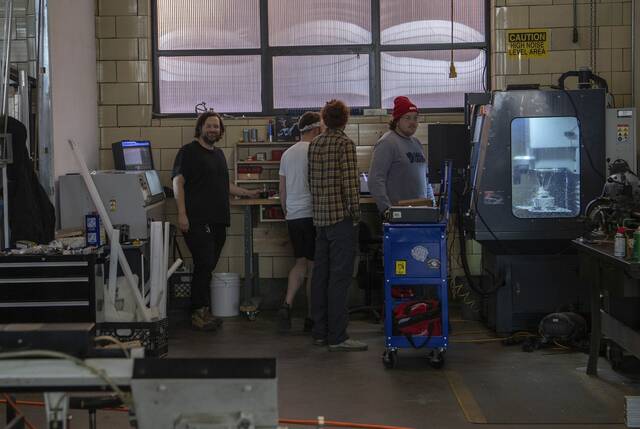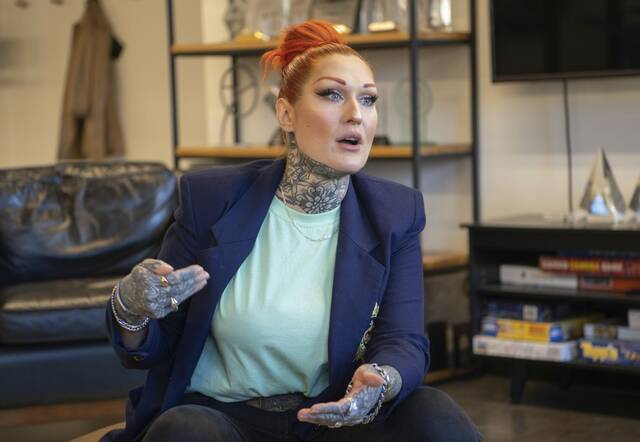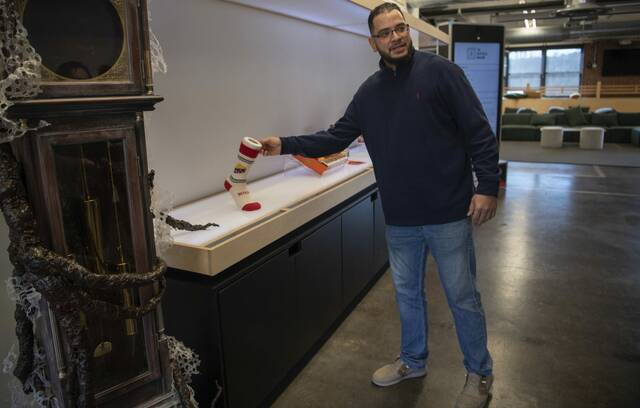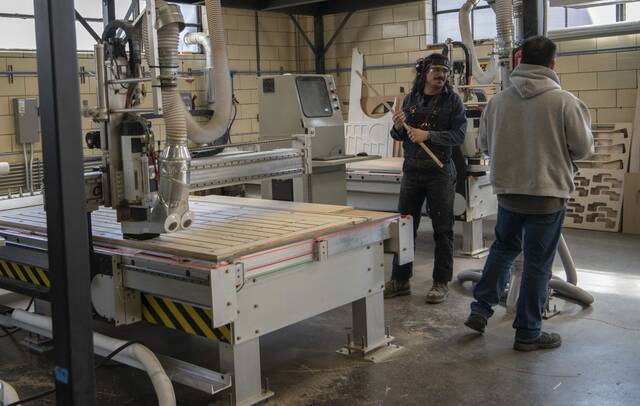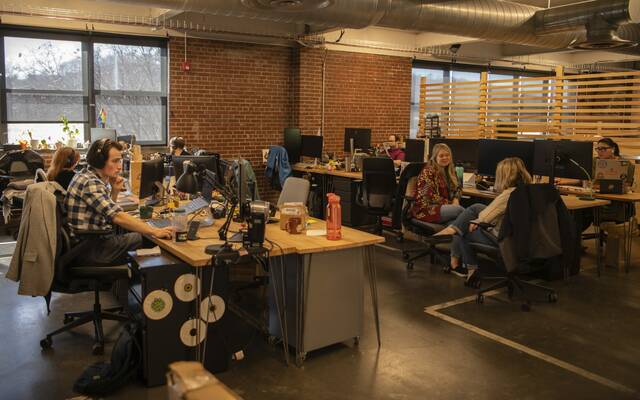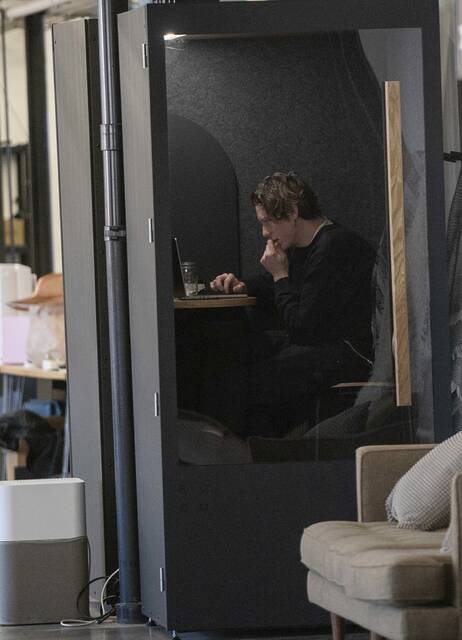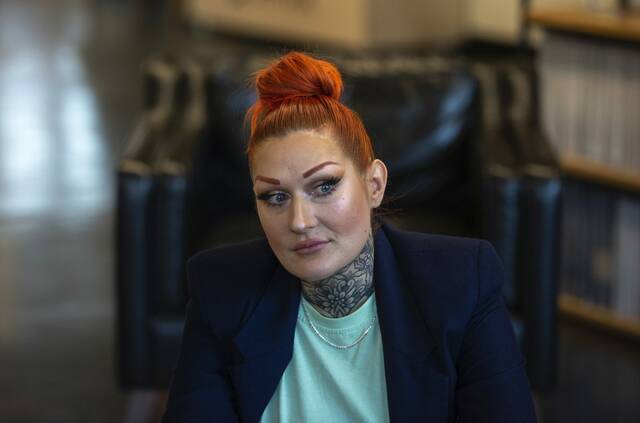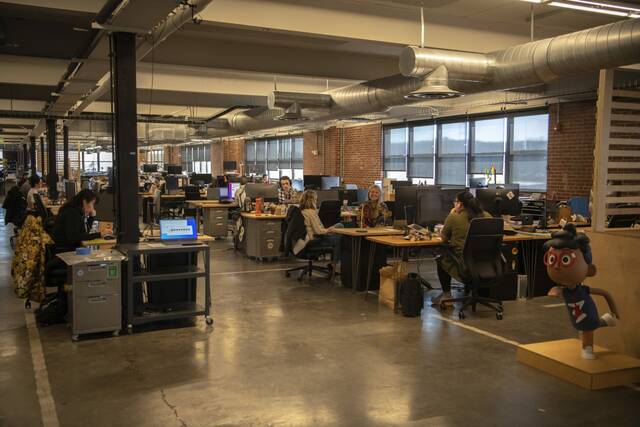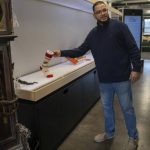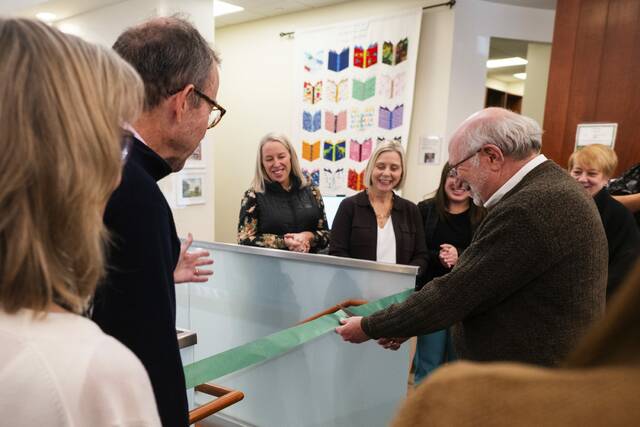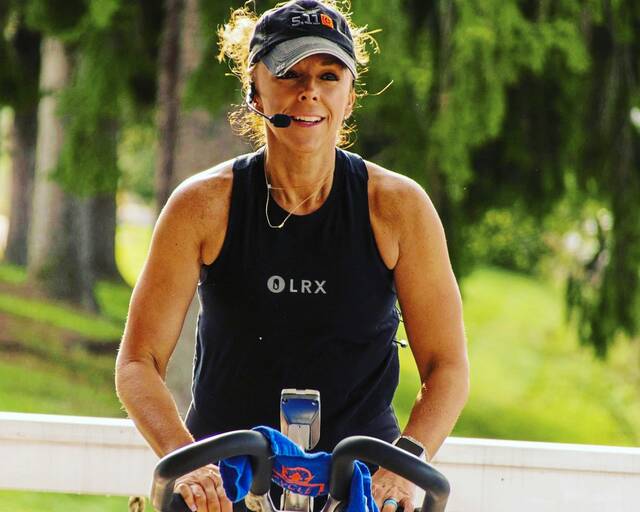At Deeplocal’s offices in Sharpsburg stands a grandfather clock, wrapped in vines and otherworldly fragments from the Upside Down — another dimension that’s featured in the Netflix hit “Stranger Things.”
The design firm created the 3D model, which mysteriously appeared on a street in Santa Monica, Calif., to count down to the fourth season trailer drop for “Stranger Things.”
Next to the clock is a drone sporting Conan O’Brien’s unmistakable red hair. When Comic-Con went virtual at the beginning of the covid-19 pandemic in 2020, TBS had to rethink the launch of its limited edition Conan Funko Pop! Figures. O’Brien’s team enlisted a fleet of drones to deliver the figures to unsuspecting fans.
It’s these kinds of quirky, out-of-the-box designs that Deeplocal prides itself in – enlisting art, technology and engineering to create unique marketing opportunities. Prototypes are made in-house at the firm’s facility in the former Fort Pitt Brewery in Sharpsburg.
Now, the company says it wants to bring up a new cohort through an apprenticeship program specifically targeting the Black community.
The program, called Gizmology, will feature five apprenticeship tracks and will last a year.
Deeplocal spun out of Carnegie Mellon University in 2006. The company now has about 125 employees, mostly in Sharpsburg. And it’s looking to expand.
The company occupies 30,000 square feet and recently purchased another 20,000 square feet across the catwalk, which will be home to a play testing space, as well as serve as a permanent home for Gizmology.
“Gizmology is actually coming in at a time when Deeplocal is growing exponentially,” Holbrook said. “So these positions not only are fulfilling a need for racial equity in tech here in Pittsburgh and beyond, but they also are needed for the growth of the company.
Holbrook said company leadership recognized the disconnect between opportunities afforded in tech and access to racially diverse neighborhoods.
“This is a problem that’s bigger than Pittsburgh, it’s bigger than the tech sector and it’s bigger than Deeplocal,” said Eanna Holton, head of studio wellbeing and operations. It goes deeper than simply hiring more people from marginalized backgrounds, because they aren’t always in the applicant pool, Holton said.
“So where is this problem starting and how do we impact that?” Holton said.
A 2022 report conducted by the Kapor Center, an Oakland, Calif.-based nonprofit, and the NAACP, found that between 2014 and 2021, the industry produced only a 1% increase in Black representation within technical roles in large tech companies.
“Despite comprising 13% of the labor force, Black talent now represents just 4.4% of board roles, 3.7% of those in technical roles, and just 4.0% of those in executive leadership,” the report stated, noting that Black workers are being paid 4% less than peers and are “often hired in lower-level roles than their qualifications justify.”
Last year, Deeplocal applied for support from its parent company, London-based marketing company WPP, which created a $30 million racial equity fund. The fund was created in the wake of the murder of George Floyd, a Black man whose death at the hands of white police officers in Minneapolis sparked outcry in 2020.
The apprenticeship program is starting with five applicants in its first round.
“We have young people from throughout the Black community in Pittsburgh – recent high school graduates, underemployed adults,” Holbrook said, noting that the company is seeking people who don’t have two- or four-year degrees.
“A traditional four-year or two-year degree can be cost prohibitive. So we want to engage with young people that we know can master any of the skill sets here over time.”
As Deeplocal is poised for expansion, the goal is that the apprentices find a spot within the company. Regardless, they will earn certifications and have a portfolio of work that they can take to other positions.
The first cohort is expected to launch in April. A second cohort is expected to launch in October.



